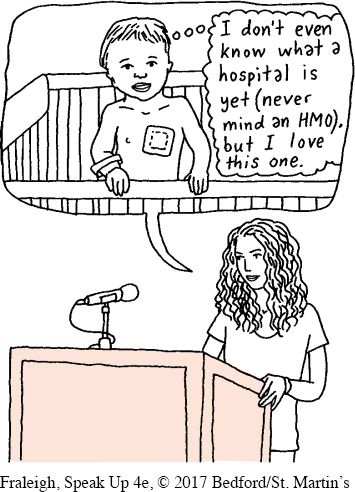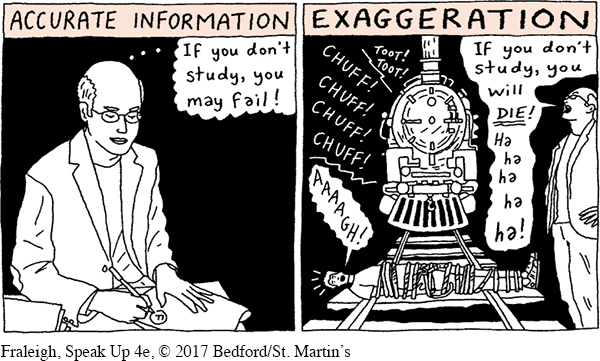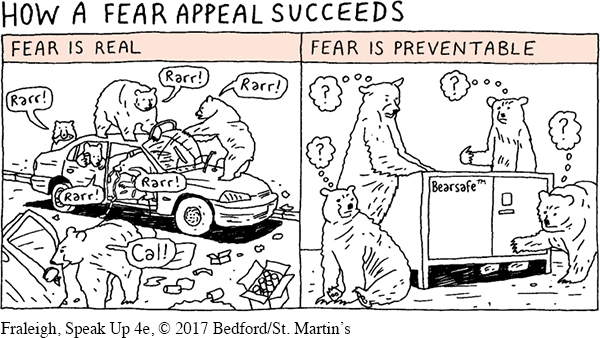Using Emotional Appeals
Humans have the capacity to experience a wide range of emotions—
Trey McPherson was born with half of his heart shrunken and nearly useless, a condition that causes most children to die in infancy. Fortunately, Trey was not one of these victims because he was treated by a leading pediatric heart surgeon. After two surgeries, Trey’s parents were able to experience the joy of seeing their ten-
Sadly, many babies are not as lucky as Trey. Although this skillful surgeon’s patients have far-
Page 561

This example evokes a variety of emotions. It stimulates listeners’ anger and pity at the thought that small children are being denied the best available care. It prompts them to empathize by imagining how they would feel if a loved one with a serious disease were forced to accept low-
Notice that this emotional appeal is accompanied by sound reasoning. The speaker provides evidence that Trey’s access to excellent care is atypical, which justifies the anger she evokes.
To see a speaker using logos and pathos, try Video Activity 18.3, “Claims: Fact (Appeals to Emotion and Credibility).”
A fear appeal—an argument that arouses fear in the minds of audience members—
Page 562

A fear appeal is also more likely to succeed if your audience members believe that they have the power to remedy the problem you’re describing.20 Consider messages by National Park Service rangers advocating safe storage of food in national parks. The rangers provide statistics showing how often bears have broken into cars or tents when people have left food out. They augment these statistics with videos that show bears smashing car windows and climbing inside the vehicles to get food. These images usually strike fear into viewers’ hearts. The rangers then show how easy it is to store food safely in lockers or bear-
Effective word choice (see Chapter 12) also can strengthen the power of an emotional appeal. When a speaker’s language connects with the values and passions of audience members, the persuasive effectiveness of a message is enhanced. Political consultants on both the right and the left carefully consider the exact words that are used to express an idea to voters. Emory University psychology and psychiatry professor Drew Westen notes that “every word we utter activates what neuroscientists call networks of association—
Page 563

How does this work in practice? Take the question of whether the government should take an active role in solving the problem of income inequality in the United States. When working with state governors who opposed government involvement in solving this problem, Luntz offered the following advice about word choice: use the terms economic freedom and free market instead of capitalism, and refer to “government taking money from hardworking Americans” instead of the phrase “raising taxes on the rich.”23
Although you are unlikely to hire a high-
Page 564